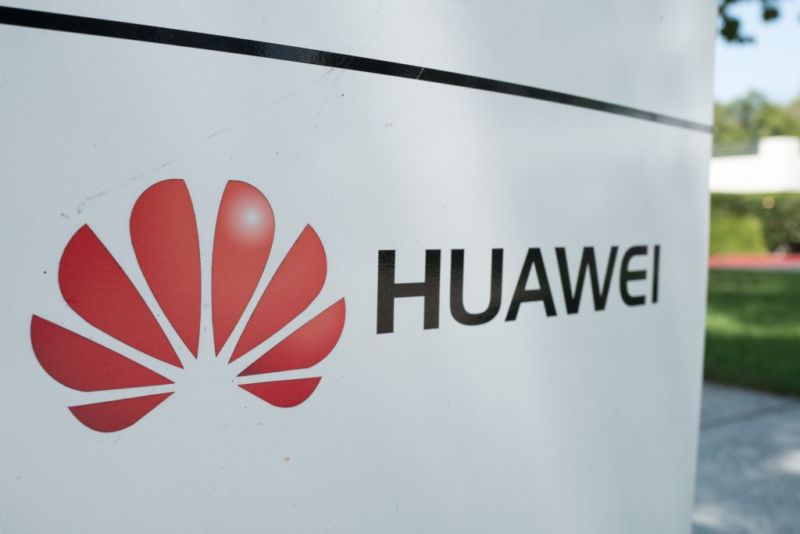
Getty Photographs | Smith Assortment/Gado
Federal Communications Fee Chairman Ajit Pai is transferring forward with a ban on tools from Chinese language distributors Huawei and ZTE in US-funded telecom tasks. The FCC will vote on Pai's proposal at its November 19 assembly, the fee stated in an announcement and fact sheet launched yesterday.
Pai's proposal "would bar communications firms from utilizing any help they obtain from the FCC's Common Service Fund (USF) to buy tools or companies from firms posing a nationwide safety menace, just like the Chinese language firms Huawei Applied sciences Co. and ZTE Corp.," the announcement stated.
The order particularly designates Huawei and ZTE "as firms that pose a nationwide safety danger" and would create "a course of for designating different suppliers that pose a nationwide safety menace," the FCC stated. Huawei's community gear is used by quite a few small, rural Internet providers.
Subsequent month's vote is the top results of a Notice of Proposed Rulemaking (NPRM) that the FCC approved in April 2018. As is normal apply, the FCC took public touch upon the NPRM earlier than finalizing the plan.
Pai issued this assertion yesterday:
On the subject of 5G and America's safety, we won't afford to take a danger and hope for the perfect. We want to verify our networks will not hurt our nationwide safety, threaten our financial safety, or undermine our values. The Chinese language authorities has proven repeatedly that it's prepared to go to extraordinary lengths to do exactly that. And Chinese language legislation requires all firms topic to its jurisdiction to secretly adjust to calls for from Chinese language intelligence companies. As the USA upgrades its networks to the subsequent era of wi-fi applied sciences—5G—we can not ignore the danger that the Chinese language authorities will search to take advantage of community vulnerabilities as a way to have interaction in espionage, insert malware and viruses, and in any other case compromise our crucial communications networks.
The FCC's $8.5 billion Common Service Fund, which is paid for by Individuals by way of charges on their telephone payments, consists of 4 applications: the Join America Fund, which provides ISPs cash to deploy broadband in rural areas; Lifeline, which offers reductions on telephone and broadband service to low-income customers; the E-Charge broadband program for faculties and libraries; and a telecom entry program for rural health-care suppliers.
Pai's order would create a rule that prohibits the usage of USF cash to buy tools or companies from Huawei, ZTE, or another firms added to the checklist sooner or later. Huawei and ZTE have been the primary designated companies due to "each firms' ties to the Chinese language authorities and army equipment," the FCC stated.
Rip-and-replace order might come later
The order being issued subsequent month won't prohibit USF recipients from persevering with to make use of tools or companies they already obtained from Huawei or ZTE. Nevertheless, funding recipients "might not use USF funds to keep up, enhance, modify, or in any other case help such tools or companies in any approach," the FCC stated.
And though subsequent month's vote will not instantly require ripping out present tools, the FCC stated it could try this sooner or later. Pai can be asking commissioners to vote November 19 on one other Discover of Proposed Rulemaking that proposes requiring USF-funded telecoms "to take away present tools from lined firms, beginning with Huawei and ZTE, from their networks," the FCC stated.
For this extra NPRM, the FCC would once more ask the general public for remark and finalize the plan later. The method takes at the least a number of months.
"To mitigate the impression on affected entities, and particularly small, rural carriers, the FCC would suggest to determine a reimbursement program to assist offset the transition price," the FCC stated. To find out that price, the FCC stated it will conduct "an evaluation to learn how a lot Huawei and ZTE tools is in these networks and the prices to take away and change it."
The objects up for a November 19 vote seem to have bipartisan help inside the fee. Republican Commissioner Brendan Carr tweeted his support yesterday, saying, "I've little doubt that China intends to spy on individuals and companies inside our borders. We should safe our telecom networks from this menace."
Democratic Commissioner Jessica Rosenworcel appears inclined to approve Pai's proposal subsequent month however stated that the FCC ought to go even additional.
"We want cybersecurity insurance policies that concentrate on all our community suppliers—not simply our Common Service recipients," Rosenworcel stated in an announcement offered to Ars. "As well as, we have to be conscious that in a world financial system, our networks will nonetheless connect with insecure tools overseas. So we must always begin researching how we will construct networks that may face up to connection to tools vulnerabilities world wide, together with virtualizing the radio entry a part of our networks."
Whereas Huawei and ZTE have denied spying for China, the Trump administration has imposed a sequence of trade restrictions on the businesses.
